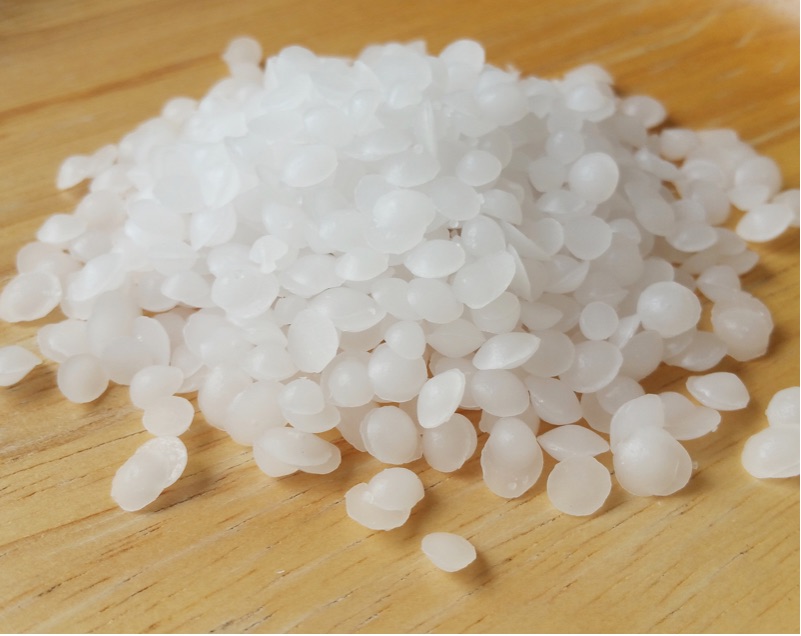
Choose the Best Natural Emulsifier
It is important to choose the best natural emulsifier when making natural, green, or organic products. Natural emulsifiers are obtained from plant oils, sugar, various nuts, berries, and leafs. Many lotions, creams, and hair conditioners on the market contain emulsifiers that are usually petroleum/hydrocarbon derivatives and are not animal and cruelty-free.
Vegetable emulsifying wax is not considered natural as it contains polysorbate 60. Polysorbate 60 goes through the process of ethoxylation. Ethoxylation is not an allowed process for natural products.
What is an Emulsifier?
An emulsifier is a type of surfactant. It is a compound that stabilizes emulsions. It holds the water and oil ingredients together, homogenous, the composition is uniform throughout the mixture. It creates the perfect blend.
Lotions, creams and hair conditioners contain an emulsifier or an emulsification system. An emulsifier contributes to a stable emulsion. A stable emulsion is when the water and oil remain together in a homogenous mixture.
Learn more about the purpose of an emulsifier here>>
Approved for Formulations
Here are some natural emulsifiers that can be used in green, natural, and some organic body, hair, and skin care products. These are plant-based. They are self-emulsifiers, complete emulsifiers, and can be sourced in small quantities. They are animal and cruelty-free (vegan), PEG-free (non-ethoxylated), biodegradable, and sustainable and are used in natural, green, clean beauty products.
Listed by their INCI name
- Cetearyl Alcohol and Cetearyl Glucoside
- Cetearyl Olivate and Sorbitan Olivate
- Cetearyl Wheat Straw Glycosides and Cetearyl Alcohol
- Glyceryl Stearate, Cetearyl Alcohol and Sodium Stearoyl Lactylate
1. Cetearyl Alcohol and Cetearyl Glucoside
Trade Names: Montanov 68™, SugarMulse™
About: The fat is derived from coconut oil and the glucose from cassava. Non-ionic, O/W
Suggested Usage: 1%-7%, Lotion: 4%, Cream: 5%, Hair Conditioner: 4%- 5%
Approved: ECOCERT, Natural Products Association, Whole Foods
non-GMO, gluten free
2. Cetearyl Olivate and Sorbitan Olivate
Trade Name: Olivem® 1000
About: The fat is derived from olive oil. Non-ionic, O/W
Suggested Usage: 1%-7%, Lotion: 4%-6%, Cream: 7%-8% and Hair Conditioner: 6%-7%
Approved: ECOCERT, Natural Products Association, Whole Foods
non-GMO, gluten free
3. Cetearyl Wheat Straw Glycosides and Cetearyl Alcohol
Trade Name: APPYCLEAN 6669, Xyliance
About: The fat is derived from palm oil and rapeseed oil and the xylose from the sugar syrup of wheat straw. Non-ionic, O/W
Suggested Usage: 1%-5%, Lotion: 4%, Cream: 5%, Hair Conditioner 4%-5%
Approved: ECOCERT, Natural Products Association, Whole Foods
non-GMO, gluten free
4. Glyceryl Stearate, Cetearyl Alcohol and Sodium Stearoyl Lactylate
Trade Names: ECOMulse, NatraMulse™, RitaMulse SCG
About: Naturally derived acyl lactylates, coconut oil and vegetable oils. Anionic lactylates, O/W
Suggested Usage: 2%-10%, Lotion: 5%-6%, Cream: 7%-8%
Approved: ECOCERT, Natural Products Association, Whole Foods
non-GMO, gluten free
Test your Emulsion
When formulating it’s important to develop a stable product. Phase separation is when the oil and water start to separate. To avoid this you want to test your product for stability.
The Professional Natural Hair Care and Skin Care Formulation Courses covers in-depth how to test your products to ensure your emulsification system is stable and will remain stable for 2-3 years, through temperature changes, and other consumer and environmental factors.
You might also like


The 2nd sentence ends with “leaves”. 🌿 (that’s a re-leaf)
Great website. Thanks for the article.
How to make stable product
How about an natural emulsier for an oil based herbal infusion with water. Is this organically certified? thank you!
All the natural emulsifiers that you have listed are for O/W formulations. do you have one for a hot w/o formulations? Thank you,
David Levy
I’ve started an organic farm, vegetables, herbs, honeybee business on my acreage in North Carolina. I’m also the CEO of a global all-natural health and wellness company. I would be interested in looking into your course on hair and skincare development, as it will advance my up-to-date knowledge on formulations. Although I have experienced formulators with many years of experience, it would be advantageous if my knowledge was better so I can review the ingredients they compile for our products with a more informed background.
I’ve had several decades experience with natural products and development but have depended on the PHDs and MDs to advise me.
Jef Welch, CEO
Biotonus Ltd
678-725-7823
jef@jefwelch.com
Wow, to see someone in your position still put energy into and value towards raising your self knowledge is inspiring. Thank you.